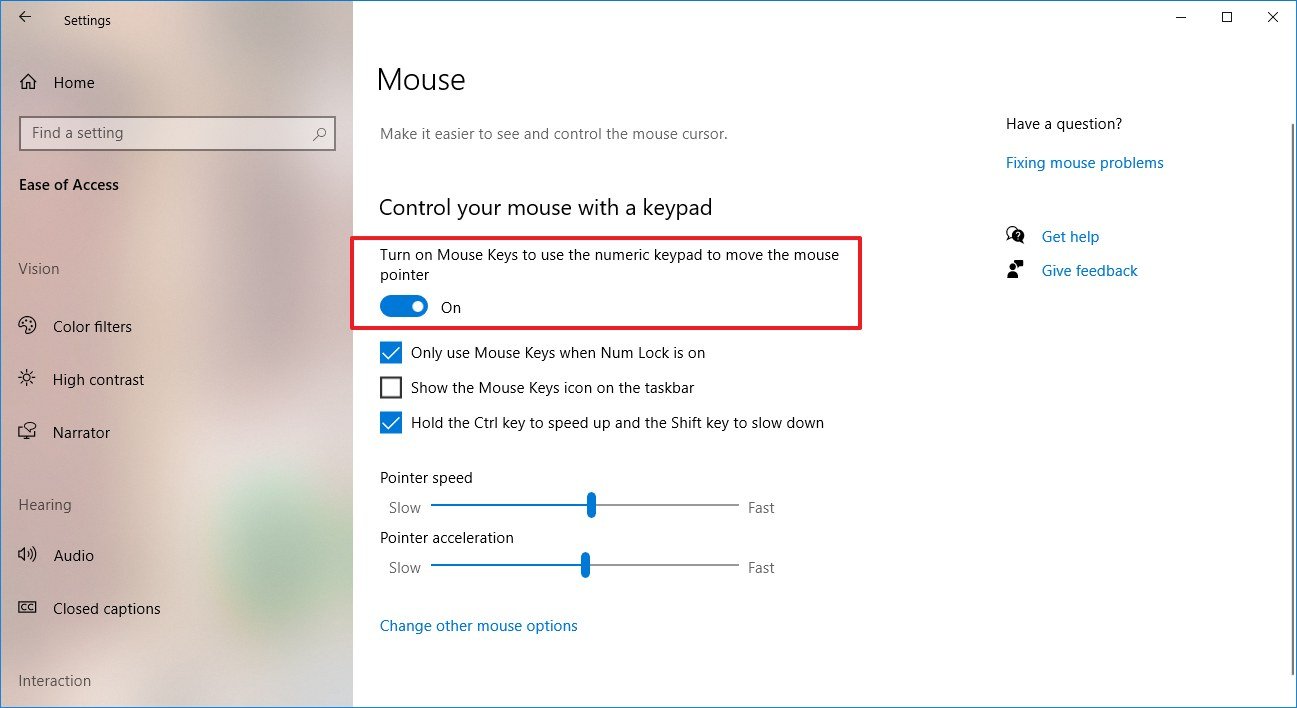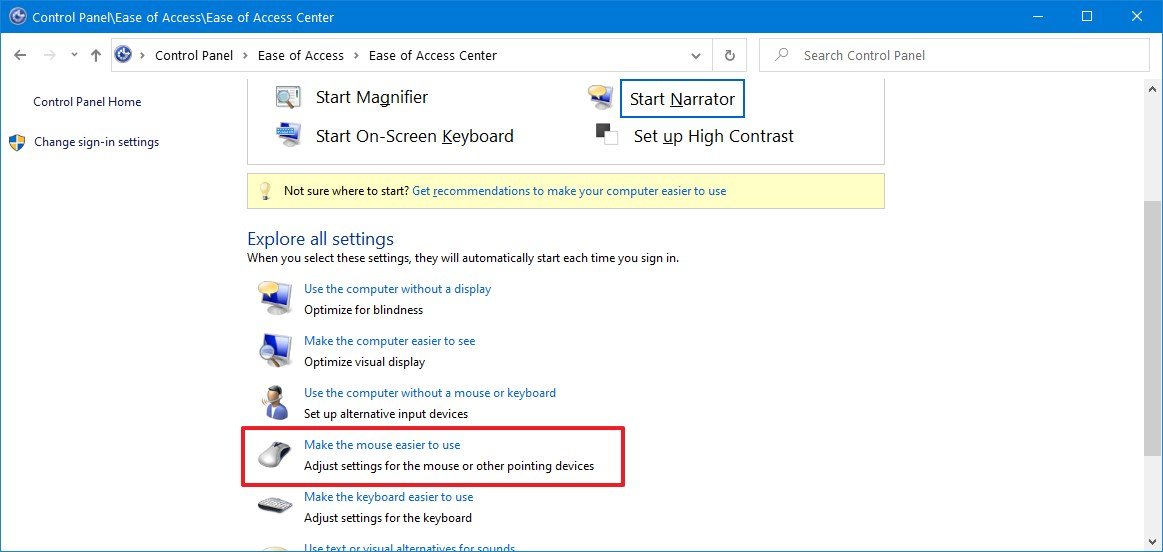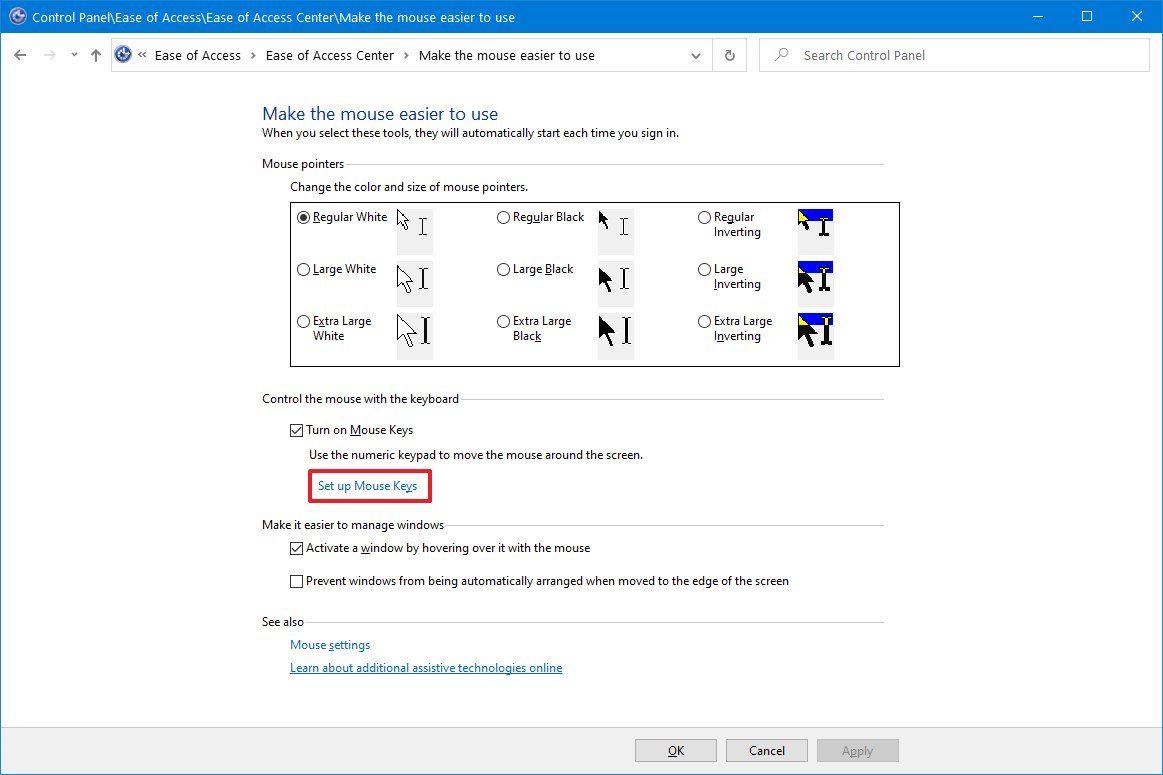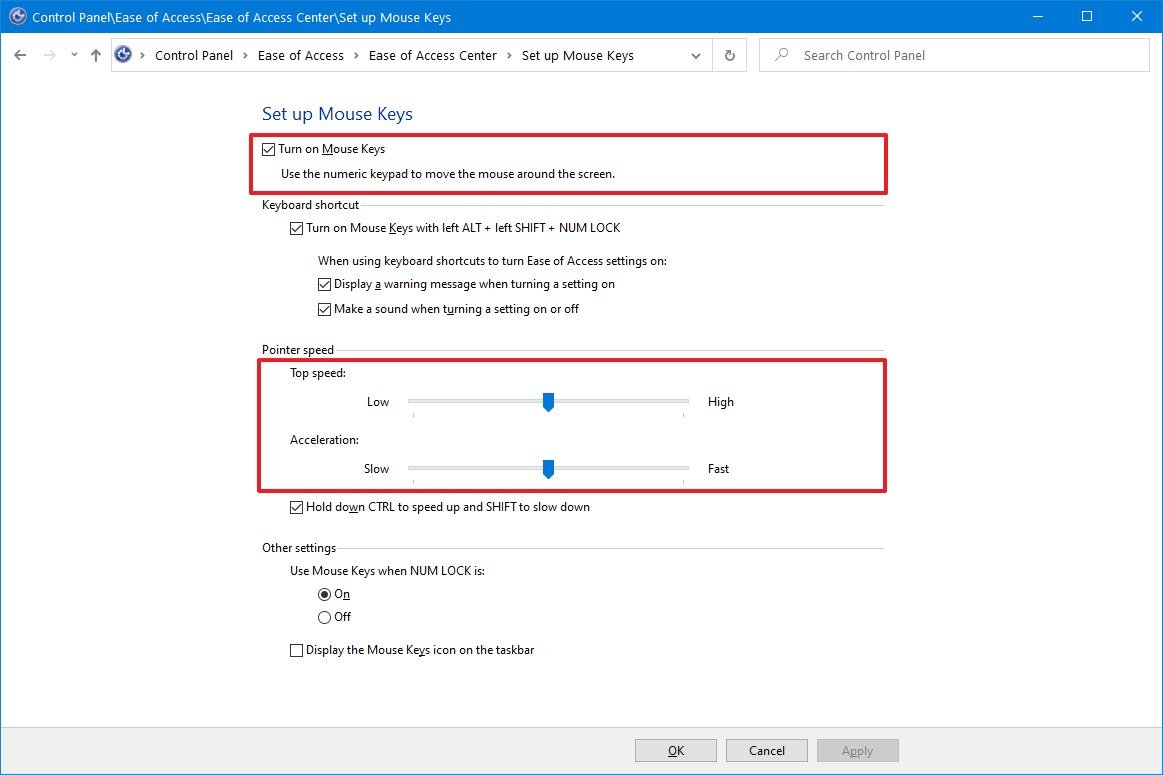How to control your mouse using a keyboard on Windows 10
You can use the numeric keypad to control the mouse on Windows 10, and in this guide, you'll learn the steps to use this feature.
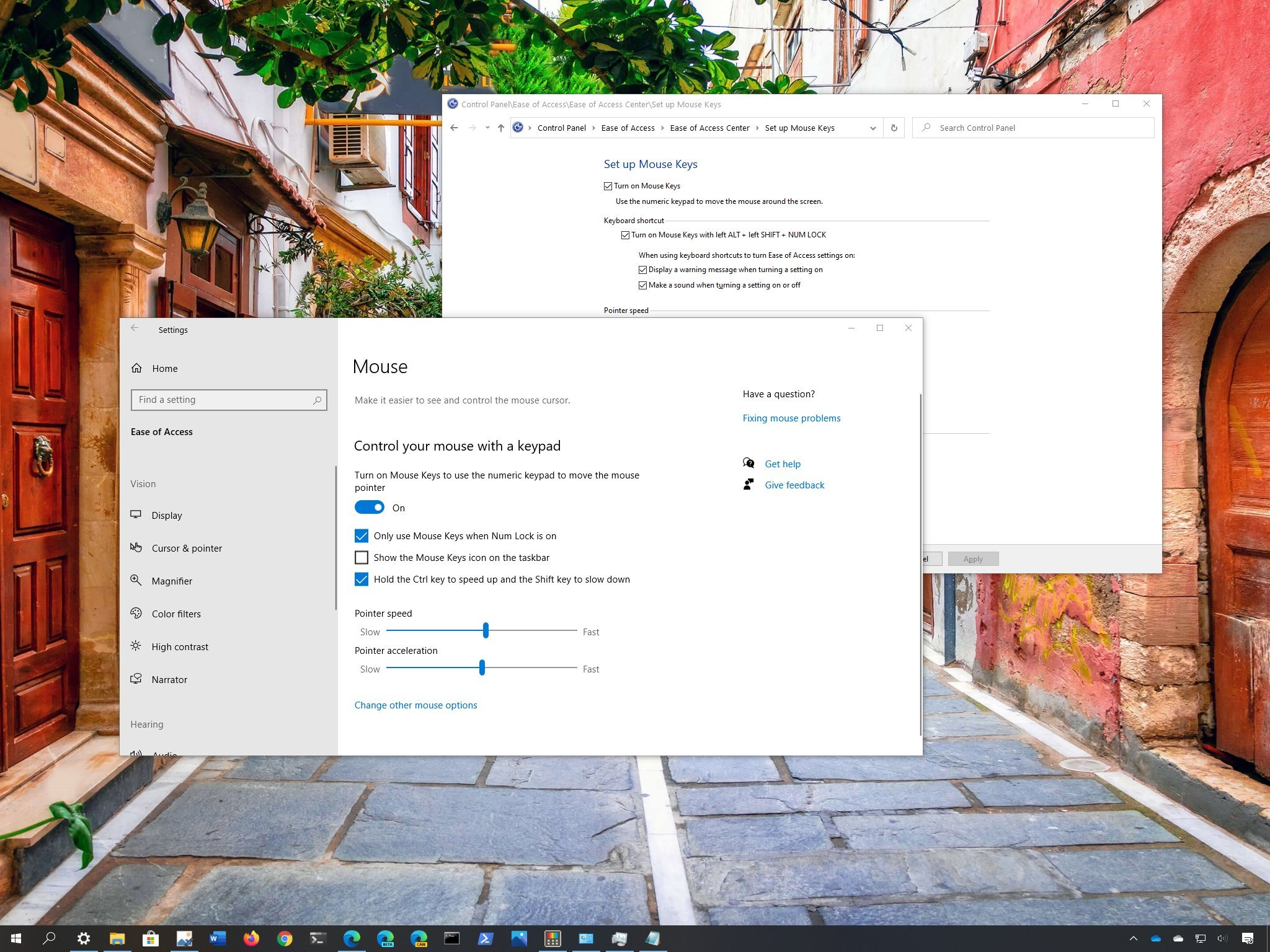
On Windows 10, there are a lot of reasons why you may want to use the keyboard to control the mouse pointer. For instance, if the mouse stops working on your desktop, the touchpad suddenly breaks on your laptop, or you can't use the mouse, and using the keys on the keyboard is your best alternative.
Whatever the reason it might be, Windows 10 ships with the Mouse Keys feature that allows you to use the numeric keypad to move the mouse as well as to perform actions, such as click, double-click, open context menus, select, and more.
In this Windows 10 guide, we'll walk you through the steps to enable Mouse Keys feature to control the mouse with the numeric keypad.
- How to enable Mouse Keys feature using Settings
- How to enable Mouse Keys feature using Control Panel
- How to move pointer using keypad on Windows 10
How to enable Mouse Keys feature using Settings
To control the mouse pointer using the keyboard on Windows 10, use these steps:
- Open Settings.
- Click on Ease of Access.
- Click on Mouse.
- Turn on the Control your mouse with a keypad toggle switch.
- (Optional) Check the Hold Ctrl key + to speed up and the Shift key to slow down option.
- Use the sliders to adjust the pointer speed and pointer acceleration.
Once you complete the steps, you can use the numeric keypad on the keyboard to move the mouse around the screen. Usually, you'll use the 4 and 6 keys to move left and right, and the 2 and 8 keys to move up and down.
If you enabled the option, you could press the Ctrl key while moving the mouse to speed up the pointer or the Shift key to slow down the pointer.
How to enable Mouse Keys feature using Control Panel
To control the mouse using the numeric keypad, use these steps:
All the latest news, reviews, and guides for Windows and Xbox diehards.
- Open Control Panel.
- Click on Ease of Access.
- Click on Ease of Access Center.
- Check the Make the mouse easier to use option.
- Under the "Control the mouse with the keyboard" section, click the Set up Mouse Keys option.
- Check the Turn on Mouse Keys option.Quick tip: You can use the "Keyboard shortcut" settings to enable or disable the feature using the Alt + left Shift + Num Lock keyboard shortcut.
- Under the "Pointer speed" section, use the Top speed and Acceleration sliders to adjust the mouse speed.
- (Optional) Check the Hold down CTRL to speed up and SHIFT to slow down option.
- Click the Apply button.
- Click the OK button.
After you complete the steps, you can start using the numeric keypad to move the pointer on the screen without a mouse.
We're focusing this guide on Windows 10, but you can use the Control Panel settings to control the mouse with a keypad on older versions, including Windows 8.1 and Windows 7.
How to use keypad to move mouse on Windows 10
Once you activate the option to control your mouse with the keyboard, you can not only use the numeric keypad to move the pointer around, but you can also select, click, and drag items.
Moving pointer around
To move the mouse pointer around the screen, use these numeric keys:
- 7 – Up and to the left.
- 8 – Up.
- 9 – Up and to the right.
- 4 – Left.
- 6 – Right.
- 1 – Down and to the left.
- 2 – Down.
- 3 – Down and to the right.
Clicking items
- Point to item, press and hold "/" (selects left button), and then press "5" – Clicks item.
- Point to item, press and hold "-" (selects right button), and then press "5" – Right-clicks item.
- Point to item, press and hold "*" (selects both buttons), and then press "+" – Double-clicks item.
Dragging and dropping
To drag and drop items, you first need to select, drag, and then open the context menu and select the move option:
- Point to item and press "0" – Drags item.
- Point to location to move item, press "." (decimal point), and select the Move here option – Drops item.

Mauro Huculak has been a Windows How-To Expert contributor for WindowsCentral.com for nearly a decade and has over 22 years of combined experience in IT and technical writing. He holds various professional certifications from Microsoft, Cisco, VMware, and CompTIA and has been recognized as a Microsoft MVP for many years.
